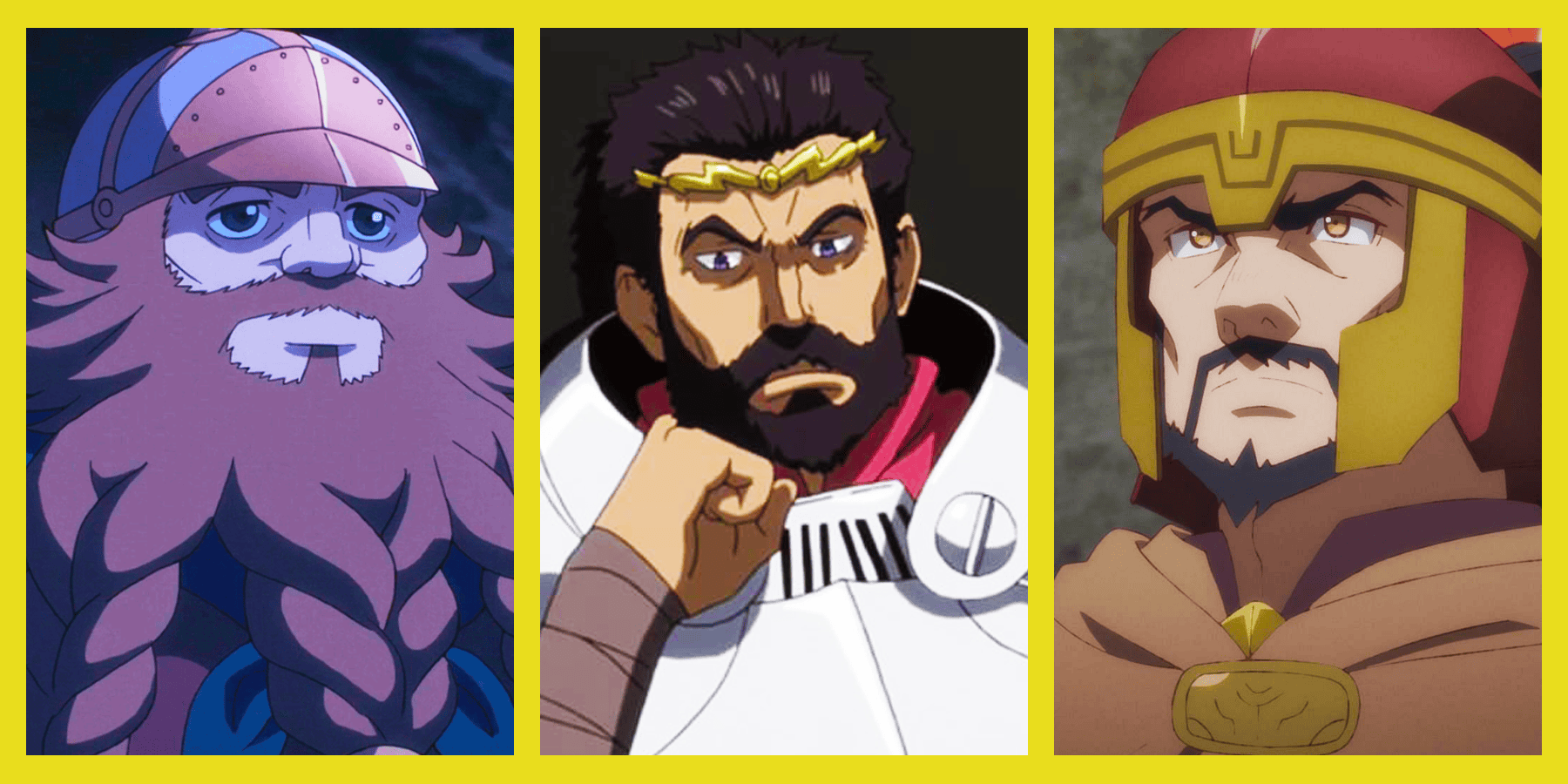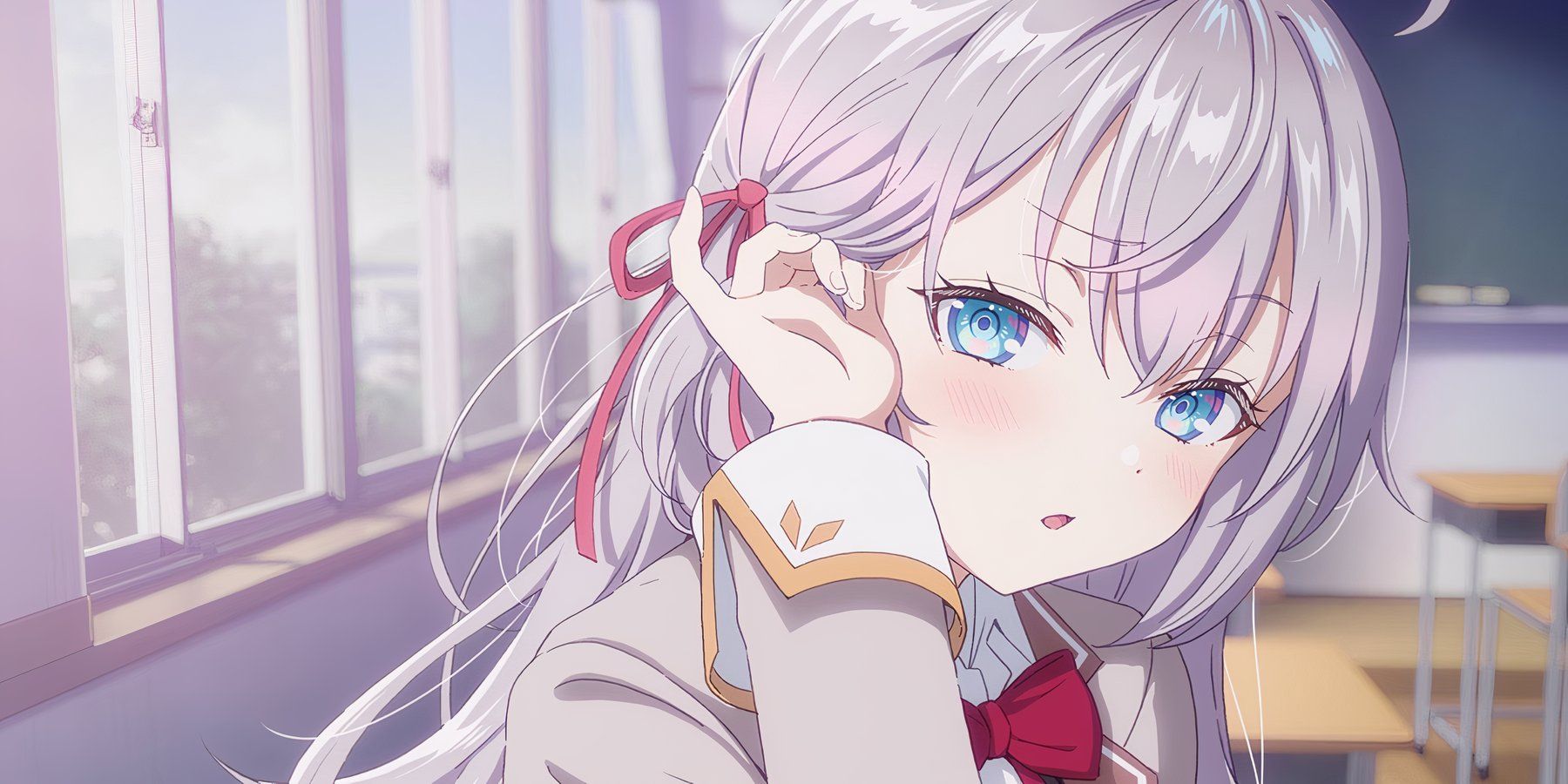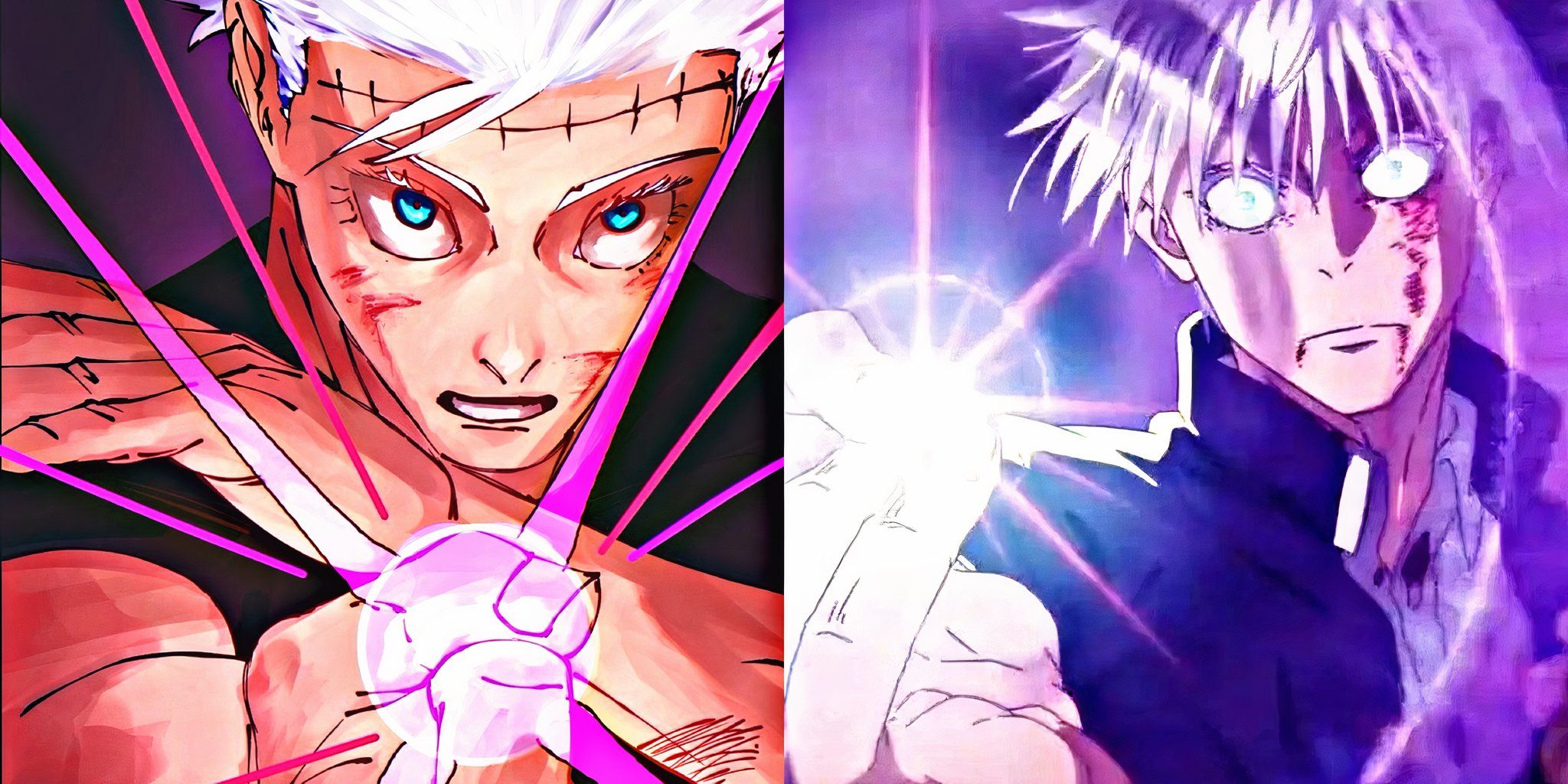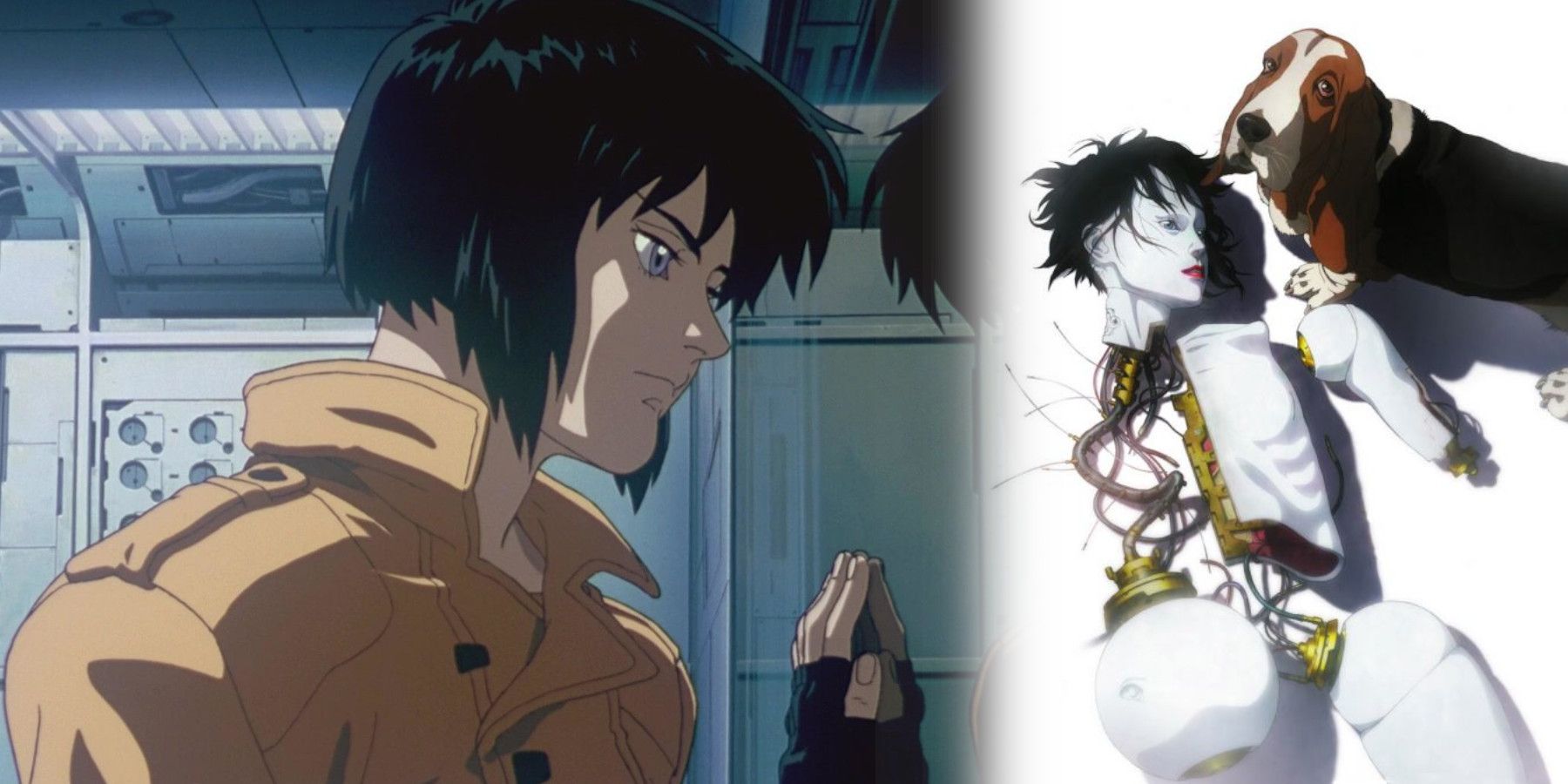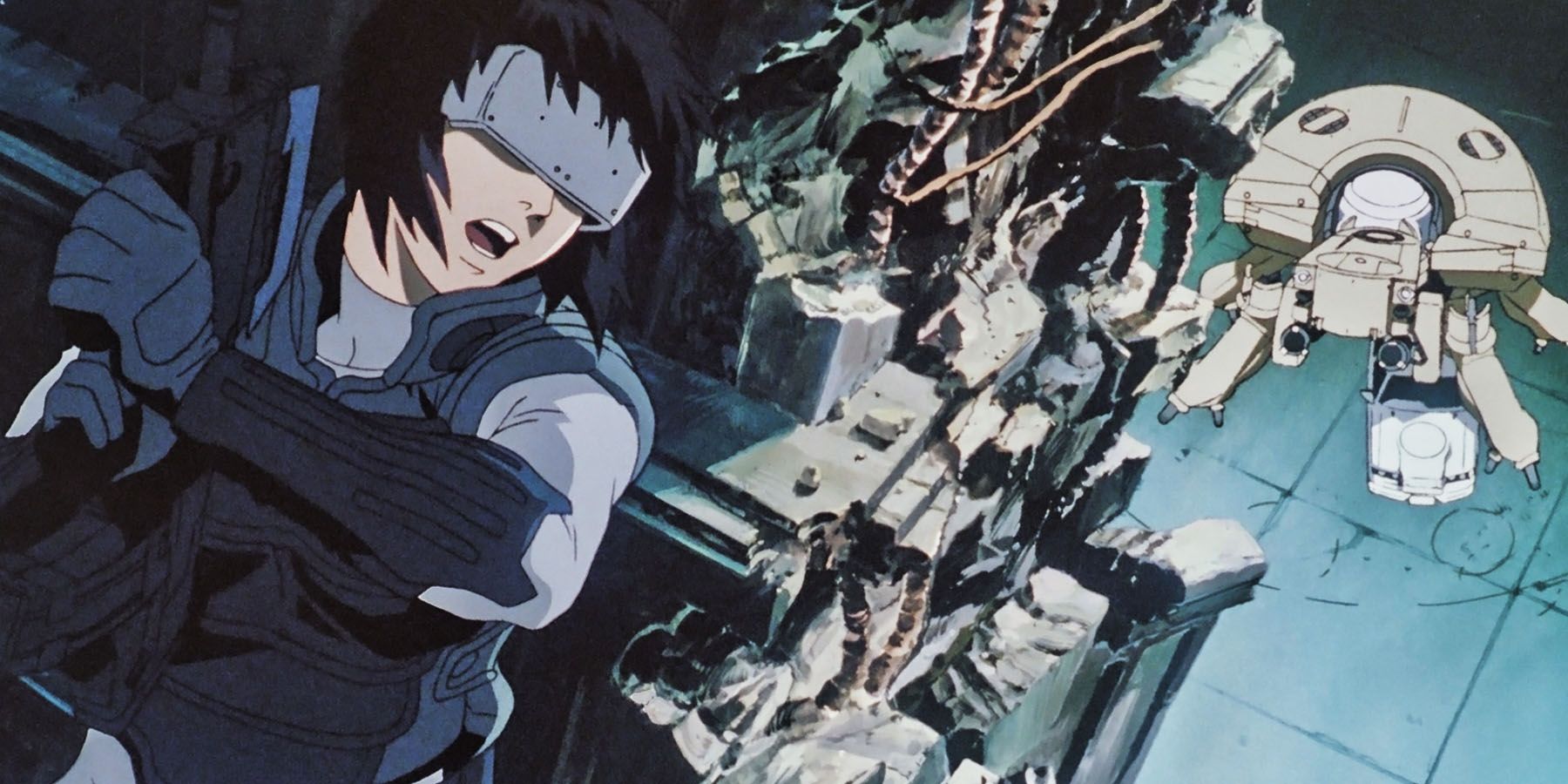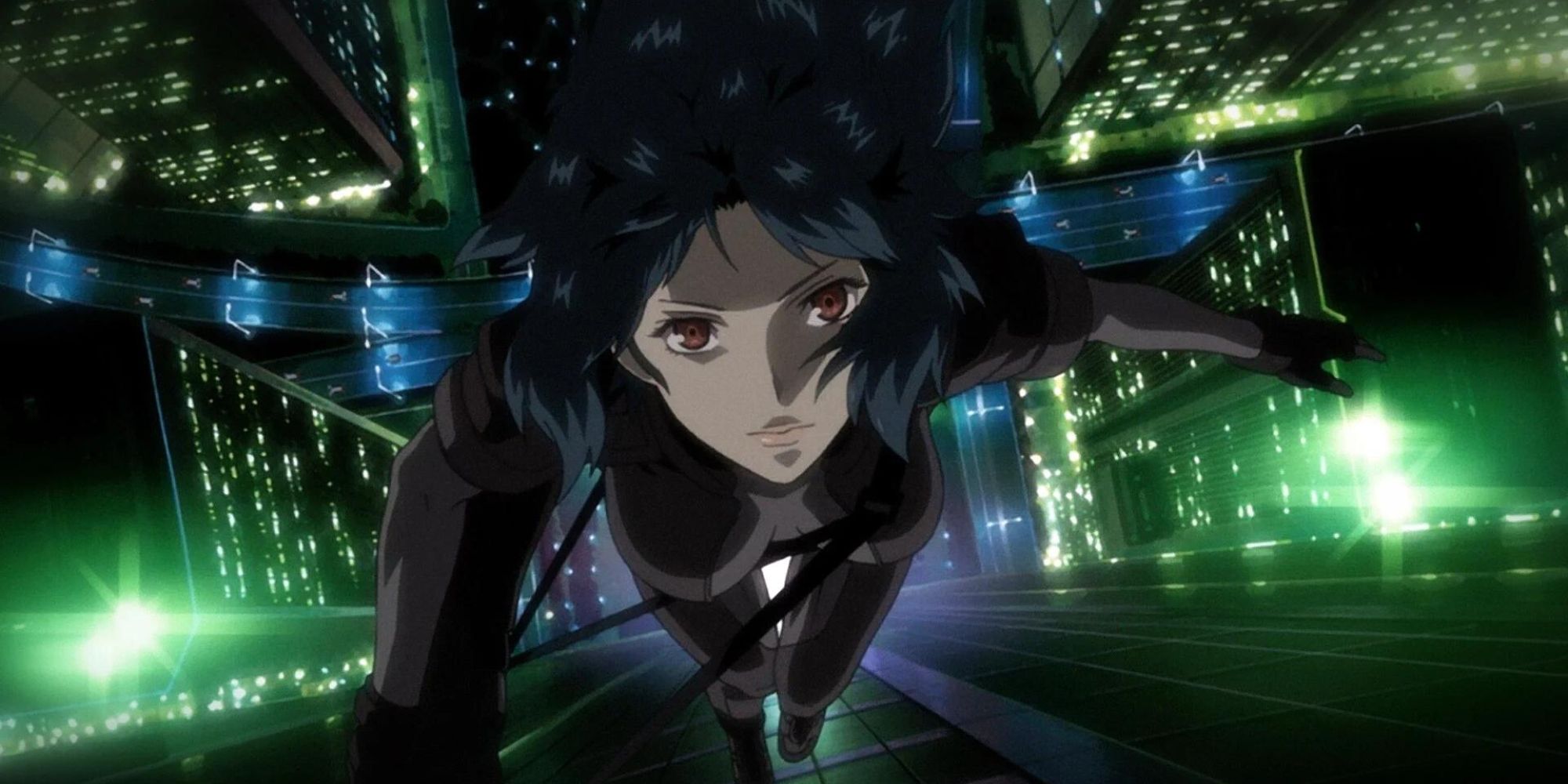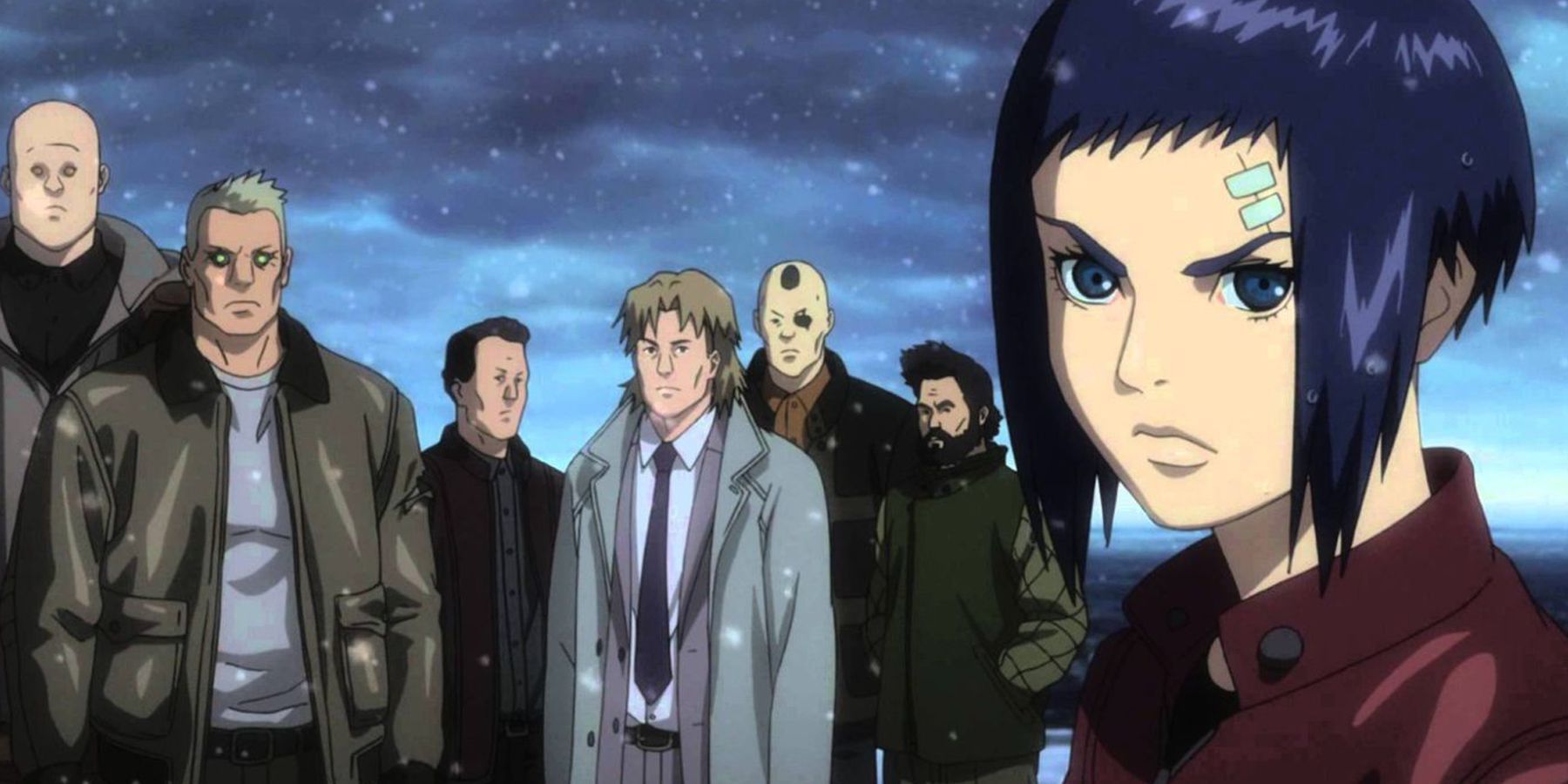Major Motoko Kusanagi of Section 9 is the face of the Ghost in the Shell franchise and is hands down one of the medium's fiercest icons, be it on screen or in the panels of the original manga. However, with each adaptation, from Mamoru Oshii's 1995 adaptation to Kenji Kamiyama's stirring political TV thriller and beyond, her portrayal has changed quite a bit.
In the time since the series was born, there have been three distinct anime continuities from wildly different creative minds in the industry, each of them quite different from the original manga. Masamune Shirow, the author of GITS, has affirmed that there is no definitive version of the franchise, and judging by the different tones and characterizations, that couldn't be more true.
1995 | Am I Truly Human?
When Mamoru Oshii brought Ghost in the Shell to the big screen, it became the default image of the franchise for many, as it became a huge inspiration in the west. However, compared to the much more light-hearted manga, Oshii's vision of GITS was quite dark and grim, favoring a far more grounded and realistic approach.
The film's core conflict surrounds the hunt for the Puppet Master, a Super-Wizard-Class hacker that is revealed to be a sentient AI built by the Ministry of Public Affairs that went rogue. Early in the film, an interpreter for the government has been hacked, and her brain is dissected while Section 9 tries to track the source of the virus. The scene illustrates the threat of being hacked in this cyberpunk future, but it also illustrates The Major's fears of sharing a similar fate.
Major Kusanagi is herself a Super-Wizard-Class hacker, and a full-body cyborg at that, with only her brain being organic. In the world of GITS, she is a force to be reckoned with and respected by her peers, yet she herself has fears of losing autonomy. On the boat with Batou in the middle of the film, they discuss how their cutting-edge cybernetics are government property.
Throughout the film, the Major is increasingly worried about whether she qualifies as human, asking what makes someone human in the first place. Batou, her confidant and down-to-earth supporter, tries to dissuade her from getting lost in philosophical despair, recognizing her as a person of incredible strength and will, but her worries persist.
Major is also decidedly stoic for much of the film, at least with regard to her facial expressions, which is likely a creative choice to reflect her internal disconnect. By the time the film concludes, and she finds herself unable to move, locked in a conversation with the Puppet Master, her greatest fears become reality.
She becomes unable to move and speaks with the Puppet Master, who offers her a chance to merge with them; a singularity that would allow the Major to transcend humanity. While it seems at first like something horrifying, the film ultimately culminates in a message about evolution and change being natural, even when it is scary.
2002 | The Philosopher Soldier
Kenji Kamiyama's Ghost in the Shell: Stand Alone Complex might be one of the most beloved entries. This tense political thriller/police drama explores the universe while grounding it all in a believable atmosphere that echoes the politics of today while letting imaginations wander. And its portrayal of the Major might be the most fun of all of them.
It's perhaps the most accurate to the manga in that the tone of the series is a lot more fun and there's some more room for levity in-between the masterfully executed drama. The whole of Section 9 feels more fleshed out, but the Major herself has never appeared more confident and charismatic.
Her vulnerabilities and her philosophical contemplations of the self are as still present, but she's not quite as shaken. The 1995 film was a self-contained story, but the TV show establishes that Major has been doing this for a while, so those insecurities are more internalized. But there is something that is unlike any other portrayal of the Major: her rage.
Across the series, the Major's lowest points are when she is retrained or at risk of being destroyed, but in SAC, she reacts to these moments with intense, tangible rage. Later in Season 1, after nearly getting crushed to death by a mech, she repeatedly fires an Anti-Material rifle into the mech, reloading it one-handed while the pilot begs her to open the hatch.
Whereas the philosophizing in the 1995 film was a reflection of Major's dismay at her right to be called human, the Major of SAC appears much wiser and content in her place in the world. Rather than transcend humanity, she maintains her form, and though her autonomy is by its nature conditional, she makes it clear that she belongs to no one.
2004 | More Than Human
Mamoru Oshii's underrated sequel to the 1995 film, Ghost in the Shell 2: Innocence, wasn't actually about the Major. In fact, it was called Innocence in Japan specifically to differentiate itself from the franchise, but it nevertheless features her in a small but meaningful capacity. The film follows Batou, who works alone after the Major's disappearance until he's put on assignment with Togusa.
The buddy cop duo investigates a string of murders committed by android sex dolls, discovering that someone has been dubbing the ghosts of young women into the dolls. A few points through the film, Major leaves small hints for Batou to help him but eventually appears during the climax to help him finish the case.
At this point, the Major has ascended beyond the mortal qualms that burdened her and embraced something more than human. It's somewhat sad, but only because Batou, who cares very much for her, finds himself unable to reach her or truly work alongside her like he used to. But within the greater series, it is the most powerful and free that the Major has ever been.
2013 | Fighting For The Right To Live
The last new Ghost in the Shell continuity to be introduced was Ghost in the Shell: Arise, a series of OVAs that spawned a film in 2015 to mark the anniversary of the Mamoru Oshii film. Arise is not the most beloved series and is often one of the most divisive, but it certainly has its charms, and certainly some great visuals and music.
Major is a bit more of a hard-ass in this series, which might turn some fans off, but the reason why she is that way speaks to the bold direction of this iteration. Whereas previous versions of the Major transcended humanity or got stronger to escape their physical and allegorical confines, Arise's Major is constantly fighting just to feel human in the first place.
Arise attacks the notion of the Major being property more than any other iteration and her drive to attain her own agency is actually really cathartic upon rewatch. She isn't always the nicest, and sometimes it is a detriment to the character, but when you think back to how she started, a lot of her personality makes way more sense.
